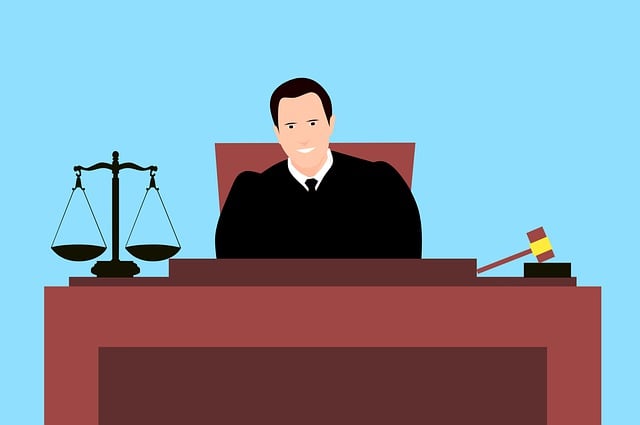Navigating Financial Services Regulation in Court requires understanding common fraud schemes like investment scams and embezzlement. Scammers target both corporate and individual clients with sophisticated tactics. Recognizing red flags is crucial for protecting oneself or one's business. Legal frameworks set clear guidelines, hold individuals and businesses accountable through stringent regulations and effective enforcement mechanisms, including jury trials for white-collar crimes. Adherence to regulatory standards is vital to avoid penalties and public scrutiny, with successful prosecutions reinforcing tolerance against fraudulent activities. Courtroom strategies are crucial for prosecutors, but defendants often employ complex methods posing challenges. Despite hurdles, successful prosecutions send a clear message regarding the integrity of financial services regulatory enforcement.
In the intricate world of finance, fraudulent practices pose a significant threat, demanding meticulous navigation through stringent regulations. This article delves into the complex landscape of financial services regulation, exploring common fraud schemes that plague the industry. We dissect the interplay between legal frameworks and their role in prevention, while examining courtroom strategies and challenges faced during enforcement. By understanding these dynamics, stakeholders can fortify defenses against evolving fraudulent tactics.
- Understanding Common Fraud Schemes in Finance
- The Role of Legal Frameworks in Prevention
- Enforcing Regulation: Courtroom Strategies and Challenges
Understanding Common Fraud Schemes in Finance

Navigating Financial Services Regulation in Court is a complex task, especially when dealing with fraudulent practices. Common fraud schemes in finance range from investment scams to fake insurance policies and embezzlement. Scammers often target both corporate and individual clients, leveraging sophisticated tactics to steal money or manipulate investments. Understanding these schemes is crucial for identifying potential red flags and protecting oneself or one’s business.
During all stages of the investigative and enforcement process, knowledge about common fraud types can empower individuals and organizations. Whether it’s scrutinizing investment proposals, verifying insurance claims, or reviewing financial statements, being vigilant can make a significant difference in preventing and prosecuting fraudulent activities. This proactive approach ensures that those involved in financial services adhere to regulations and act in the best interests of their clients.
The Role of Legal Frameworks in Prevention

Legal frameworks play a pivotal role in preventing fraudulent financial practices by setting clear guidelines and establishing accountability. Stringent regulations, such as those governing financial institutions and service providers, serve as a deterrent, ensuring that businesses operate with transparency and integrity. These laws are designed to navigate the complex landscape of financial services, providing a robust legal foundation for addressing wrongdoings.
Effective enforcement mechanisms, including jury trials in cases of white-collar and economic crimes, have proven instrumental in holding individuals and organizations accountable. The threat of public scrutiny and severe penalties discourages fraudulent activities. Moreover, successful prosecutions send a strong message that such practices will not be tolerated, ultimately contributing to a more trustworthy financial environment. Navigating these legal intricacies can lead to the complete dismissal of all charges for those who operate within the bounds of the law, reinforcing the importance of adherence to regulatory standards.
Enforcing Regulation: Courtroom Strategies and Challenges

Navigating Financial Services Regulation in Court presents a complex landscape for legal professionals and industry stakeholders. As fraudulent financial practices continue to evolve, so do the regulatory responses aimed at deterring and penalizing offenders. Courtroom strategies play a pivotal role in enforcing these regulations, with prosecutors utilizing various tactics to build compelling cases against accused parties. This includes meticulous document examination, expert witness testimonies, and intricate analysis of financial records to uncover misleading or false information.
The challenges, however, are multifaceted. Accused individuals and entities often employ sophisticated methods to avoid indictment, such as complex financial structures and offshore accounts. Prosecutors must navigate these labyrinthine schemes, ensuring that evidence is admissible and legal arguments are robust. Moreover, establishing intent and proving beyond a reasonable doubt can be arduous, especially in cases with substantial financial sums involved. Yet, an unprecedented track record of successful prosecutions sends a strong message across the country, underscoring the importance of upholding regulatory integrity within the financial services sector.
Navigating financial services regulation in court is a complex task, especially with evolving fraudulent practices. Understanding common schemes and their underlying mechanisms is essential for both legal professionals and financial institutions. Strengthening legal frameworks can significantly prevent fraud, but enforcing these regulations presents unique challenges. By examining successful courtroom strategies, we can enhance our approach to combating fraudulent financial practices. This includes adapting laws to modern digital landscapes and fostering international cooperation to disrupt global fraud networks.






